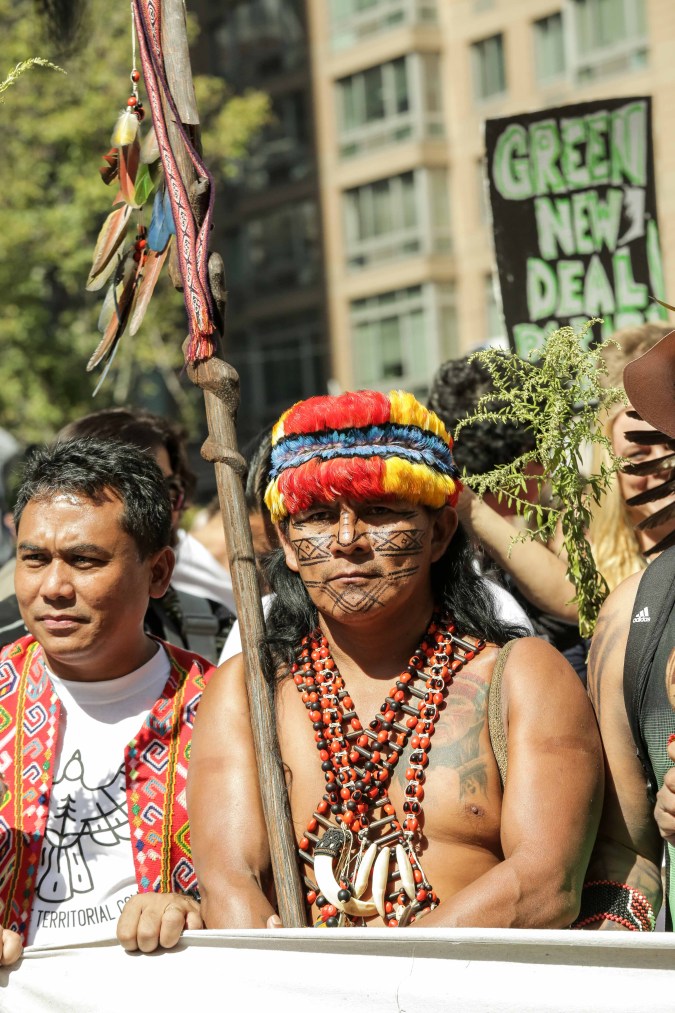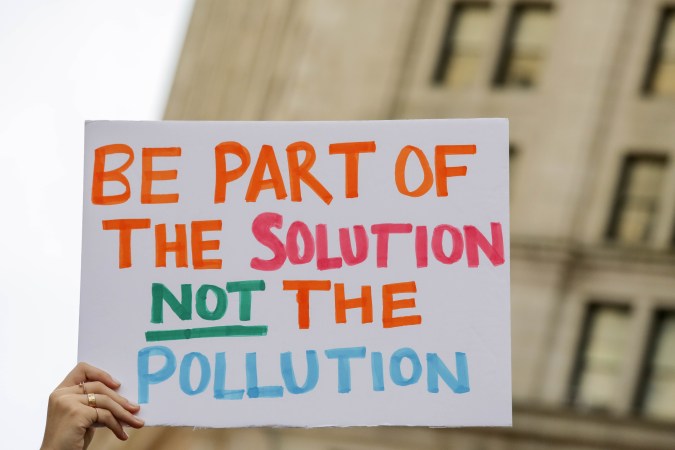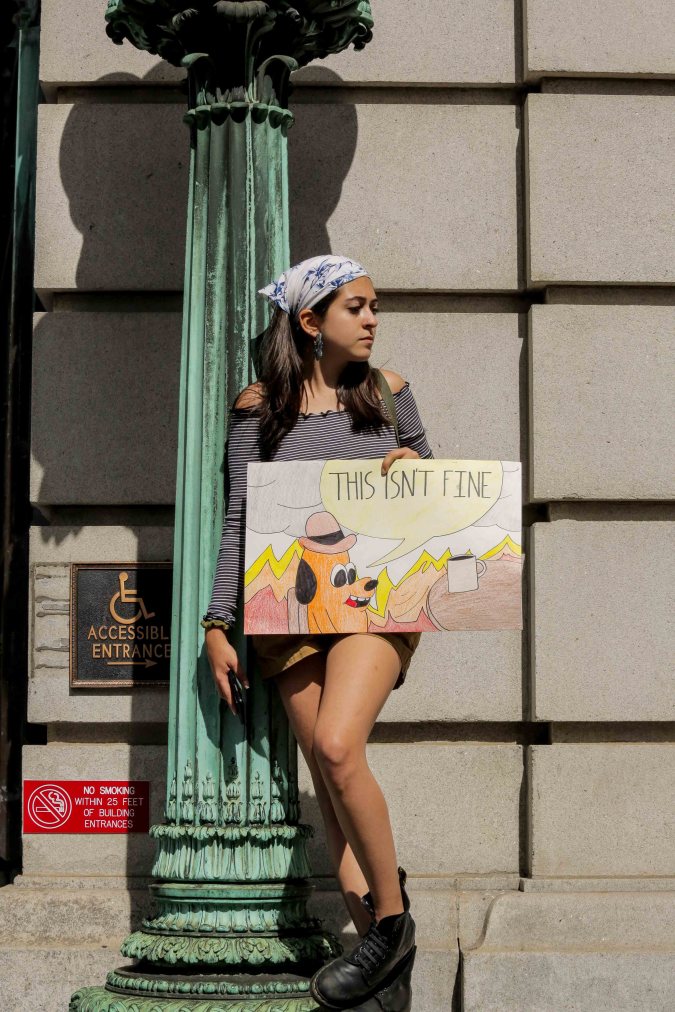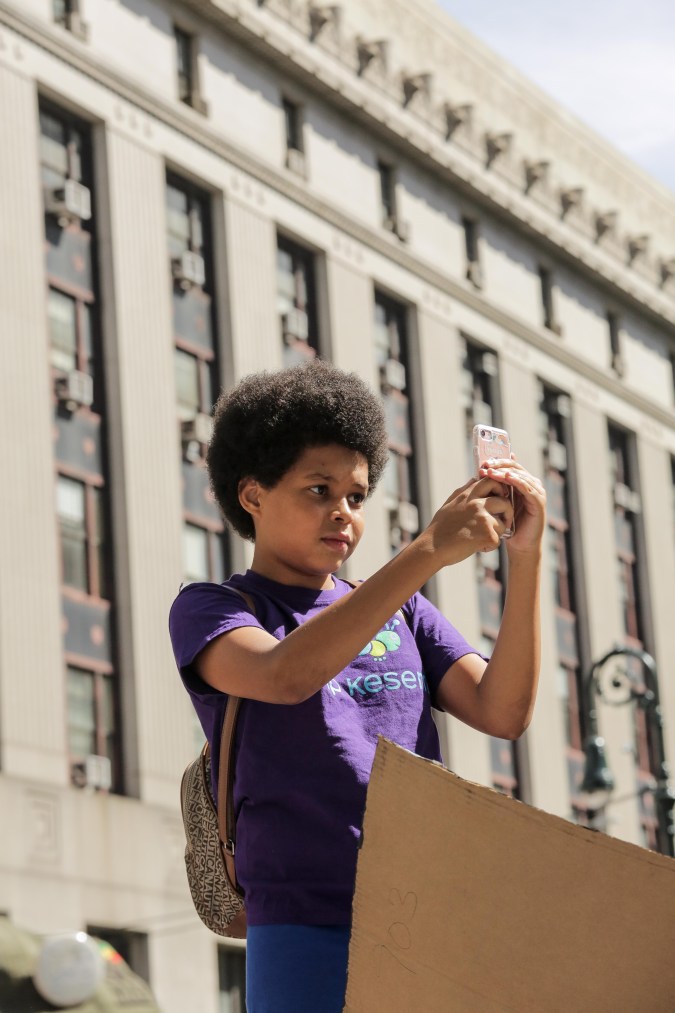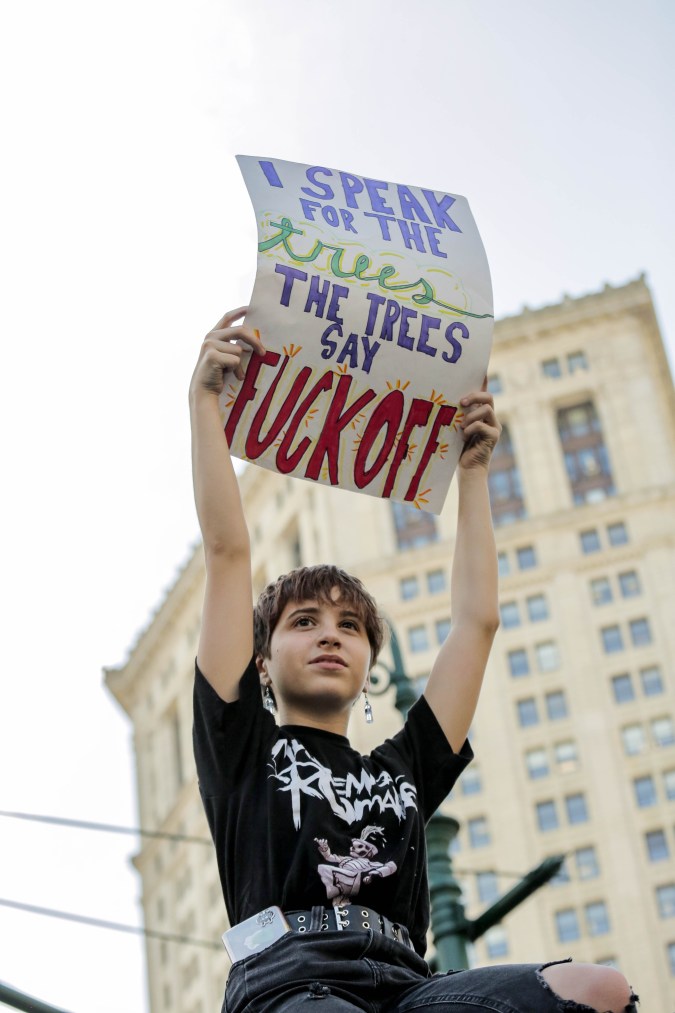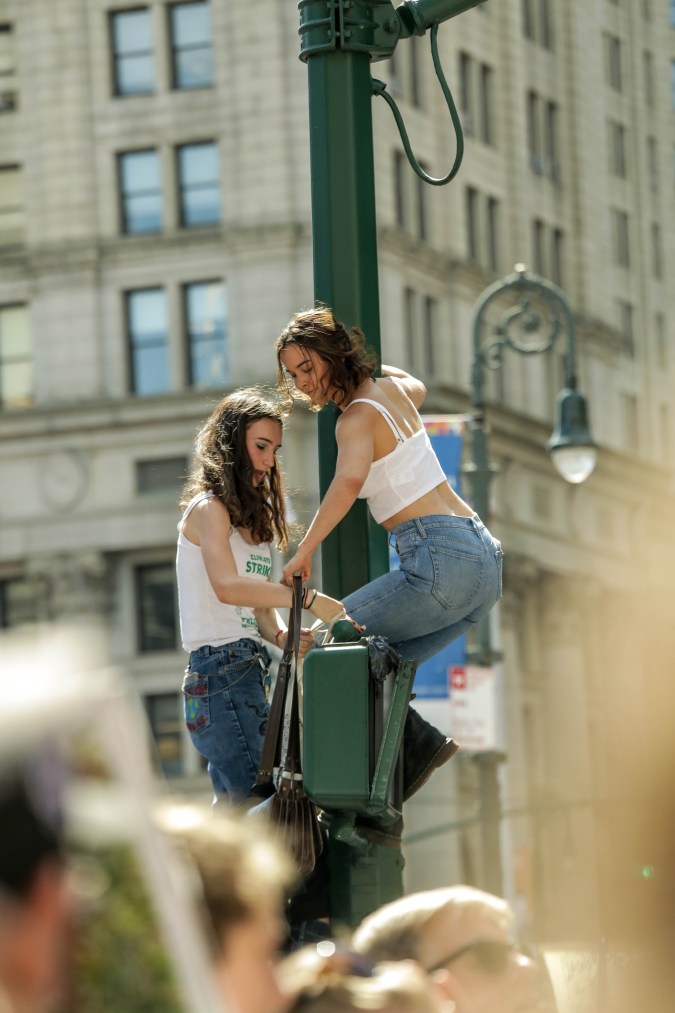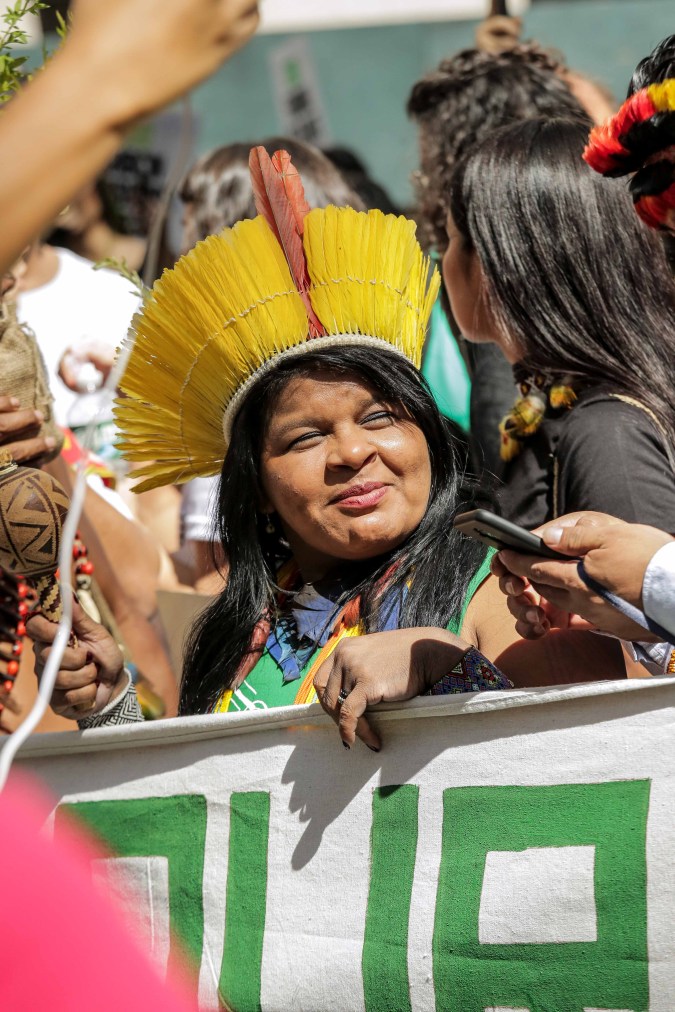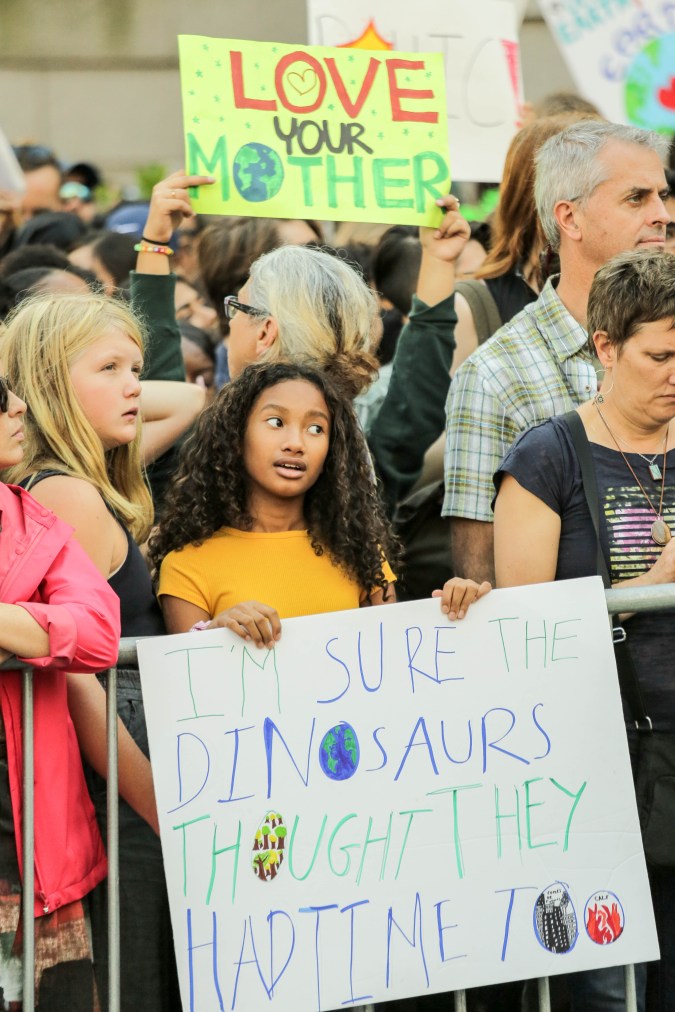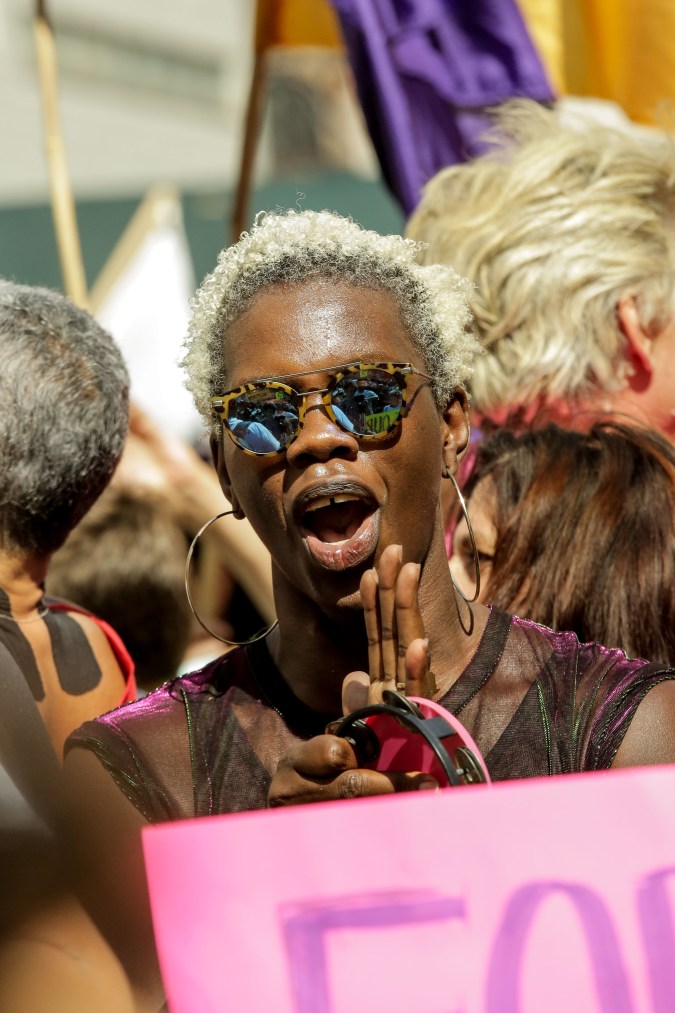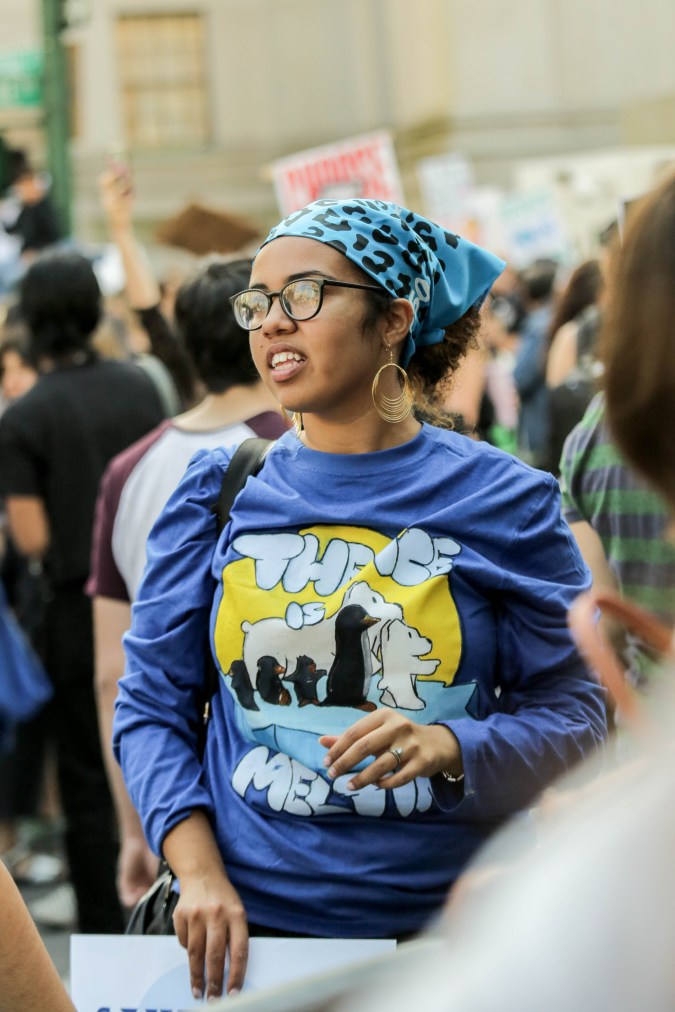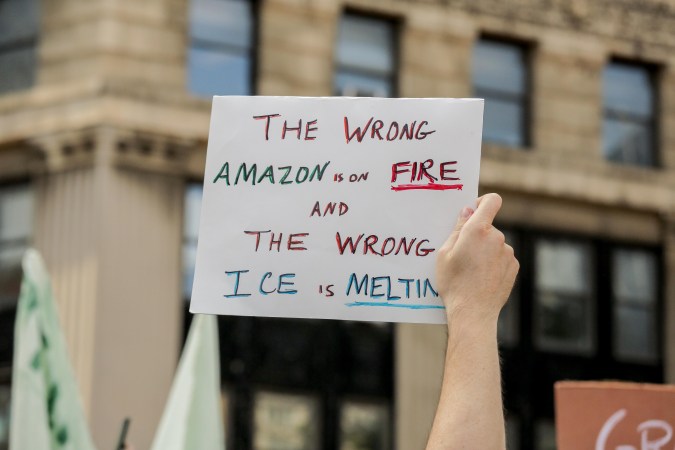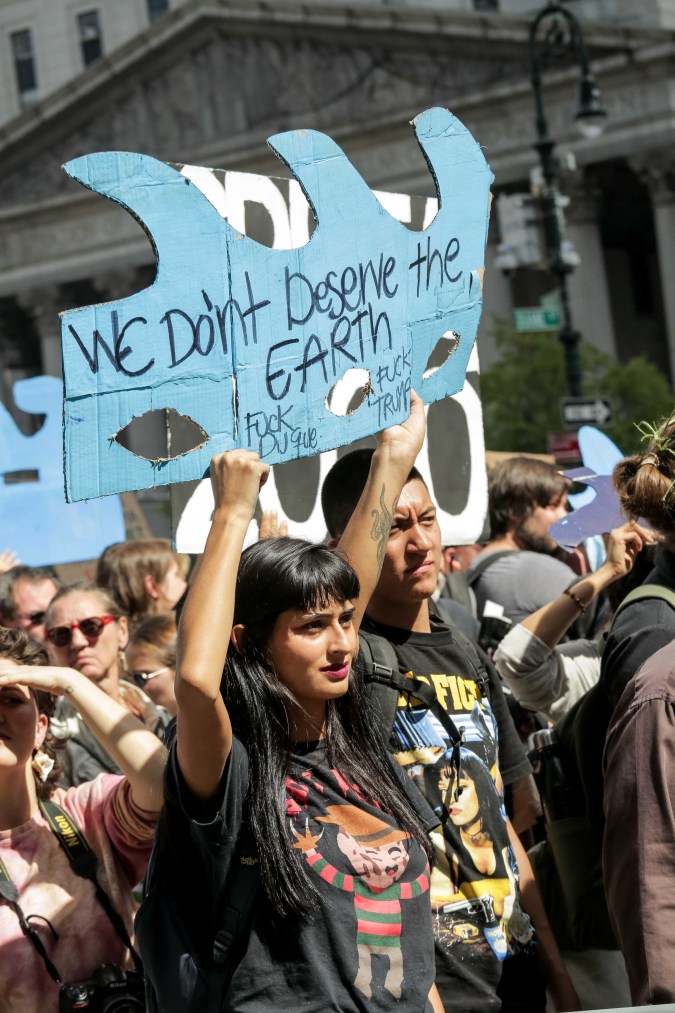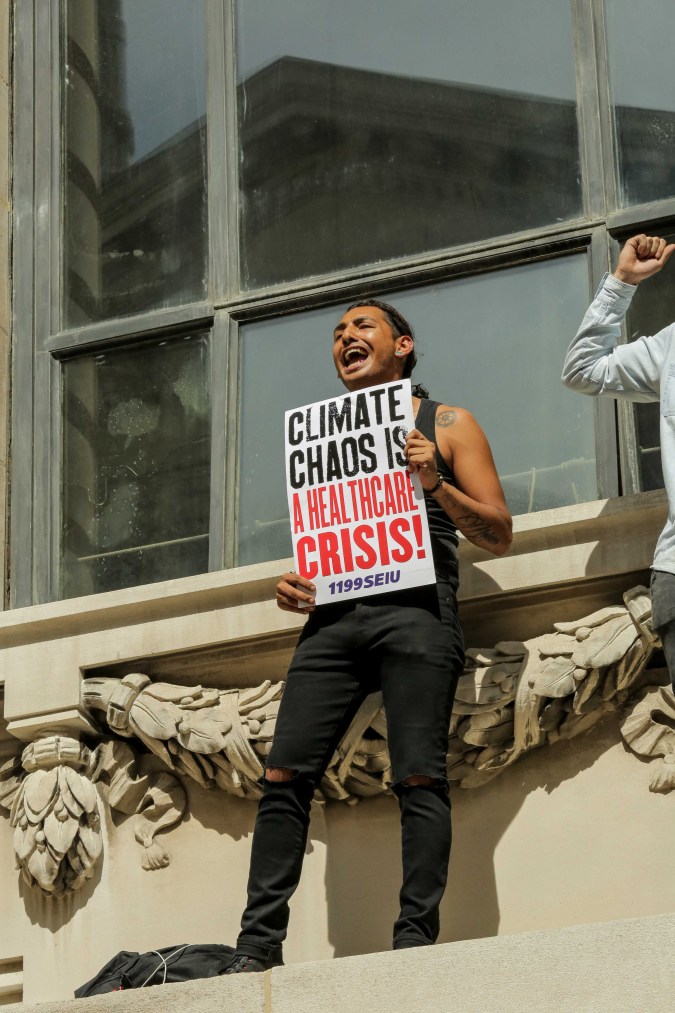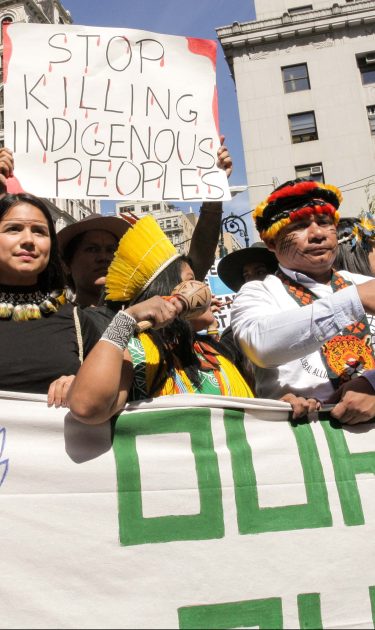On a not-quite summer, not-quite fall New York City day, the youth came out in droves to once again show that climate change is the most pressing issue on a global scale. Some missed classes. Some took a day off work. And many of them showed up early. By 11:30 a.m. – half an hour before the official start of the climate change action – there was already an impressive crowd chanting, “No more coal. No more oil. Keep the carbon in the soil.” The day was marked by phrases, whether it was chants – “I don’t know what I’ve been told, fossil fuels are getting old” and “the Earth is on fire; Bolsonaro is a liar” – or signs – “don’t burn my future” and “we are skipping our lessons to teach you one!” Attendees had much to say about how the environment is suffering because of capitalism and greed.
People of all ages attended, of course, but it was young people’s voices that were at the forefront. It’s young people who were acutely aware that nothing mattered more than protesting at Foley Square in Manhattan today, Friday, September 20, 2019. They joined noted climate activists Greta Thunberg, Xiuhtezcatl Martinez and Marisol Rivera at just one of the actions taking place across the country. New York’s participation in the Global Climate Strike – which takes place three days before the UN Climate Summit in New York – doubles as a Puerto Rican Day of Action. Today, is also the second-year anniversary of Hurricane Maria, a storm that was partially more severe because of climate change.
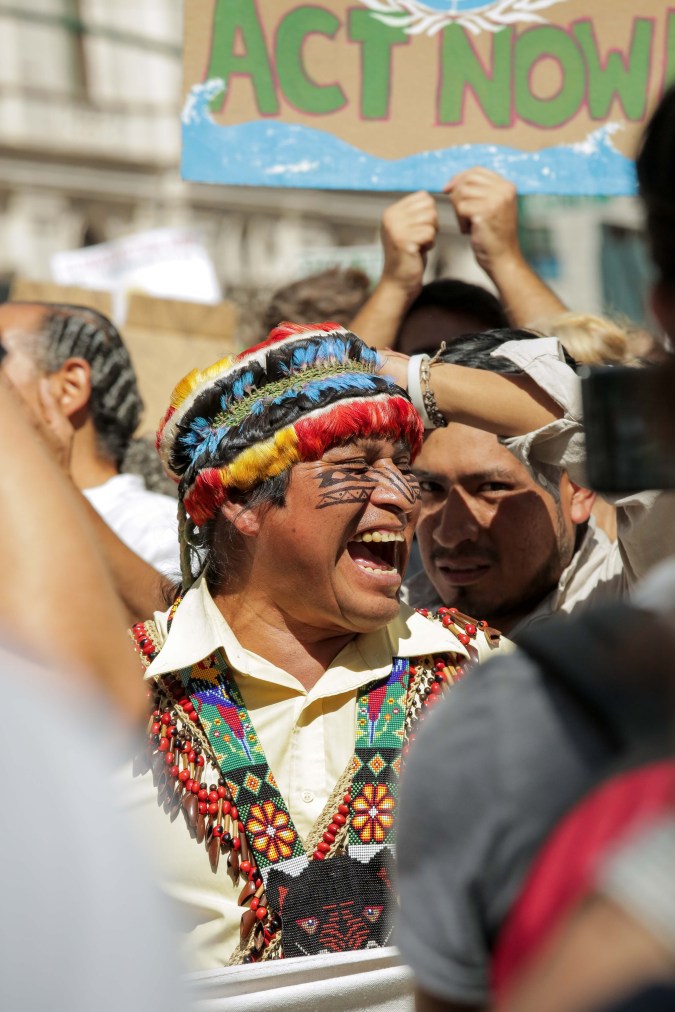
It was inspirational to see how young people took charge today – they were both speakers and organizers for the event. And though many of them are not as visible as Greta, a 16-year-old Swedish activist who became known around the world because of her fight for the environment, it doesn’t mean they’re any less passionate.
In a phone call with Jade Lozada, 17, the day before the protests, she fervently rattled off statistics about how climate change affects communities of color and discussed why today’s strike was so necessary.

“I think that we’ve spent a lot of time in the past talking about personal environmentalism, which is closing in on the goal from the bottom,” she tells me. “And now, with this strike, we have to try to close in on the goal from the top by putting pressure on governments and people who have the power to make change and aren’t doing so… I think that once more of America is on board with the urgency of this issue, politicians will have to fold in and they will have to vote for something that will address the issues that we have.”
As we head into the 2020 elections, it’s becoming increasingly clear that climate change will inform the decisions of many young voters. Polls have even shown how for Democratic voters, climate change is one of the most important issues.
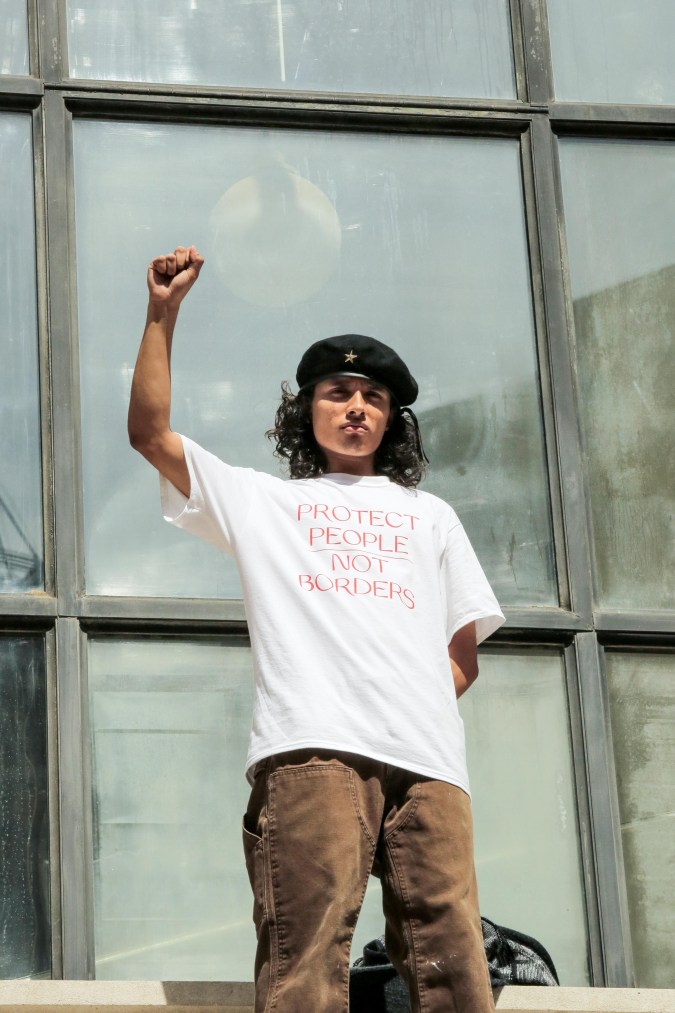
And young people like Jade are paying attention to how climate change disproportionately affects Latinxs and other communities of color.
“[The neighborhoods of] people of color and communities of color are chosen to put in these fracking projects and factories and improper waste management systems and everything like that, right in their backyard,” she adds. “And sometimes when you see those things you think, ‘Man, this is the government’s fault. This is a corporation’s fault.’ But we don’t often think of all those normal things in our communities, the way that we are chosen for basically the shortest straw [in regards to] climate change.”
It’s things like being disproportionately affected that inspired 21-year-old Daphne Frias, who also attended the strike today, to join this fight.
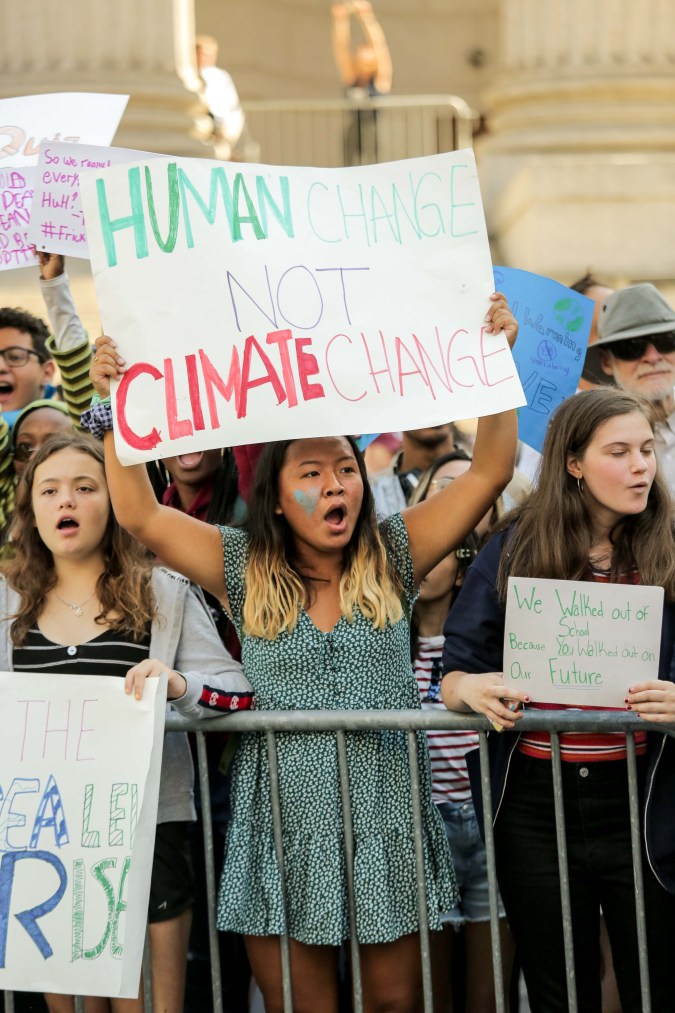
“For me, it’s of utmost importance to use my voice as a Latina and a proud disabled woman,” she tells me the day before the strike. ‘I’m speaking about how my communities are disproportionately affected by climate change. As weather patterns change and snowstorms become even more unpredictable, there have been numerous times where I haven’t been able to leave my house. Additionally, in minority communities like mine, fossil fuel processing plants and other climate-destroying infrastructures are abundantly placed. Just because we are poor doesn’t mean we don’t deserve a good quality of life. To fight for climate justice is to fight for the equality of our well beings. Nuestro planeta está suplicando por nuestra ayuda.”
It’s a terrible position to be put in – the constant worry of whether we will have an inhabitable world in the next few generations – but today reiterated that the youth is up for the fight. That they have no choice but to fight.
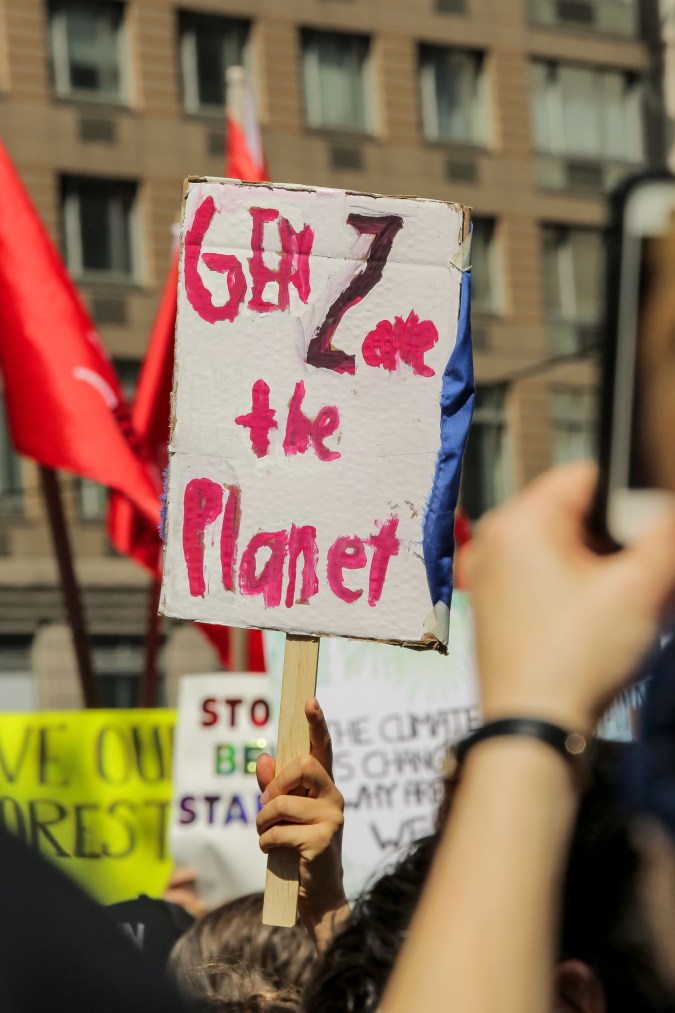
Furthermore, they envision a world that is more equitable, that doesn’t leave anyone behind, because, at the end of the day, we’re all connected.
“I think that our world, in general, can be re-evaluated through the lens of climate change and how we are hurting not just our environment, but our people and our economies and our political system and our founding values through climate change,” Jade says.
“People who migrate from the Northern Triangle… they’re all coming here because they have droughts in those countries. Droughts make people poor, poverty makes people turn to crime and crime drives out everyone who is not doing that. We are seeing that now. We’re not approaching it the way it should be approached. We’re seeing them as invaders, as intruders, and it’s worsening, not just the political climate in our country, it’s also worsening our social climate, because we’re not looking at the big picture. If we were to address climate change appropriately, if we were to think about all the people who must be accounted for in the transition between a fossil fuel economy and a renewable energy economy… we would see a revolution in the way we live.”
Additional reporting by Itzel Alejandra Martinez.
